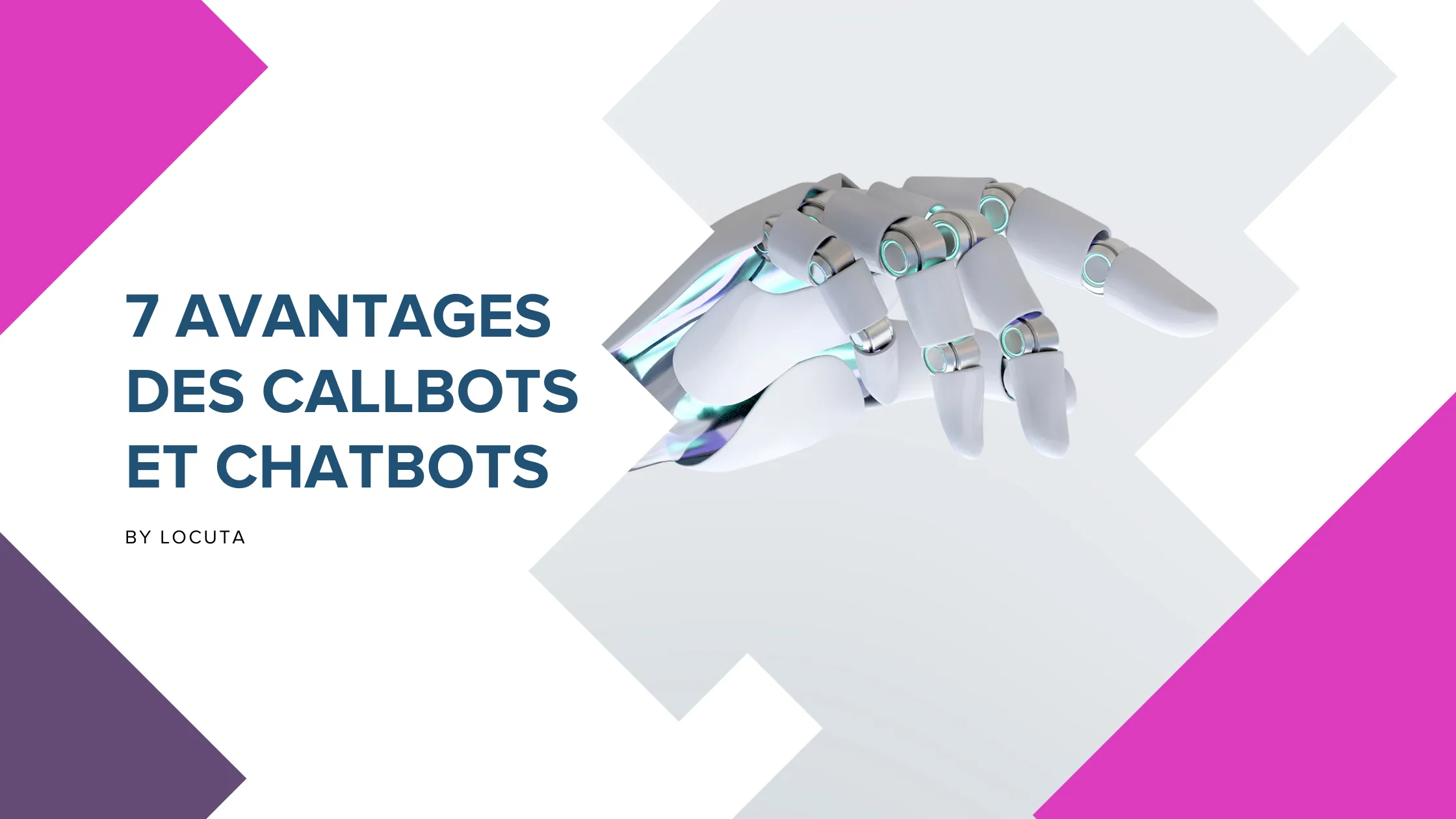L’intelligence artificielle est bien plus qu’une simple tendance. Dans l’environnement commercial actuel, elle se transforme en un formidable outil d’automatisation des processus et d’optimisation des ressources.
Grâce à cette technologie, les entreprises peuvent développer des stratégies innovantes dans différents domaines. Elles peuvent faciliter les tâches de leurs employés et améliorer l’expérience de leurs clients.
En fait, une étude menée par Adobe a révélé qu’aujourd’hui, seulement 15 % des entreprises utilisent l’IA, et 31 % ont déclaré qu’elle était à l’ordre du jour pour les 12 prochains mois.
Malgré sa popularité, le domaine de l’intelligence artificielle peut parfois être intimidant, mais cela prend fin aujourd’hui. Dans cet article, Locuta clarifie les concepts et répond aux questions afin que vous puissiez vous familiariser ou vous tenir à jour sur les connaissances clés de l’IA.
« L’intelligence artificielle est merveilleuse, mais il n’y a pas de magie en elle ».
Qu’est-ce que l’intelligence artificielle ?
Quand on parle d’intelligence artificielle, la première chose qui vient à l’esprit est une machine qui imite les fonctions cognitives des « êtres intelligents », comme le raisonnement, l’apprentissage ou la résolution de problèmes.
Une définition plus intellectuelle de l’IA est la capacité d’un système à interpréter correctement des données externes, à apprendre à partir de ces données et à utiliser ces connaissances pour réaliser des tâches et des objectifs concrets grâce à une adaptation flexible.
Contrairement à ce que beaucoup croient (peut-être inspirés par la science-fiction), l’IA n’est pas encore une « intelligence générale » ; on en est encore loin. Ce n’est pas un système capable de résoudre n’importe quelle tâche donnée comme le ferait un être humain (comme Terminator).
L’IA telle que nous la connaissons aujourd’hui représente une « intelligence étroite ». C’est-à-dire qu’il s’agit d’un système qui est suffisamment intelligent pour accomplir une tâche spécifique. Il ne sait pas faire autre chose que l’activité pour laquelle il a été formé.
Qu’appelons-nous « intelligence » lorsque nous parlons d’intelligence artificielle ? En d’autres termes, qu’est-ce qui rend la technologie « intelligente » ?
En général, cette technologie est définie comme « intelligente » parce qu’elle peut imiter ce qui est compris comme un comportement intelligent. Par exemple, elle apprend par l’expérience et trouve comment résoudre un certain problème.
En outre, afin d’évaluer le degré d' »intelligence » des systèmes actuels, nous pouvons tenir compte de ce qu’Andrew Ng, un chercheur renommé en intelligence artificielle, a suggéré comme une « règle empirique imparfaite ». Cette règle stipule que « presque tout ce qu’un être humain typique peut faire avec moins d’une seconde de traitement mental peut être automatisé par l’intelligence artificielle. »
À l’avenir, l' »intelligence » de ces machines ne cessera d’évoluer. En fait, 42 % des chercheurs en IA prédisent que, d’ici 2030, l’intelligence artificielle sera similaire à l’intelligence humaine.
Quelle est la différence entre le Machine Learning et le Deep Learning ?
Il existe de nombreuses façons de développer l’intelligence artificielle. C’est un domaine très vaste avec différents secteurs.
L’un d’entre eux est le Machine Learning ou apprentissage automatique. On pourrait le définir comme une façon de développer des systèmes sans les programmer spécifiquement pour effectuer une tâche particulière. En d’autres termes, un système est formé de manière à ce qu’il apprenne par lui-même.
Pour ce faire, un algorithme est mis en œuvre, définissant comment le système doit apprendre à effectuer une tâche. Ensuite, le système est formé à l’aide d’exemples. Il est essentiel d’indiquer au système les caractéristiques qu’il doit garder à l’esprit pour accomplir une tâche. C’est ainsi qu’il peut prendre des décisions sur la base des informations établies.
En outre, le Deep Learning est une branche de l’apprentissage automatique qui utilise des algorithmes capables de « réaliser par eux-mêmes » quelles sont les caractéristiques importantes dans un groupe de données brutes, en fonction du contexte.
Est-il essentiel pour les entreprises d’ajouter des technologies d’IA ? Pourquoi ?
Ce n’est pas forcément essentiel, mais c’est plutôt pratique. L’intelligence artificielle peut faciliter et accélérer de nombreux processus et réduire considérablement les coûts, les erreurs et les délais de livraison.
Principalement, elle nous permet de nous concentrer sur des activités plus complexes et de laisser les tâches répétitives aux systèmes autonomes. Par exemple, dans le domaine du service clientèle, nous pouvons laisser un robot comme un Callbot intelligent répondre à la plupart des demandes de manière autonome. De cette façon, les êtres humains ne s’occuperont que des situations qui nécessitent un service humain.
Les avantages sont nombreux : une disponibilité 24 heures sur 24 et 7 jours sur 7, un dépannage rapide, moins d’efforts de la part des clients, une sécurité et une confidentialité accrues. De plus, grâce à l’IA, les interactions peuvent être personnalisées pour chaque type de client en fonction de l’orientation de la conversation.
Quelques conseils pour une entreprise qui n’a jamais utilisé l’intelligence artificielle et qui souhaite l’ajouter à sa stratégie de service clientèle.
-
- N’utilisez pas l’IA dans le seul but d’innover. Sa mise en œuvre doit être fondée sur une stratégie alignée sur les objectifs et la mission de l’entreprise dans son ensemble. En outre, elle doit permettre de résoudre des problèmes.
- Toutes les entreprises n’ont pas la capacité ou les ressources nécessaires pour développer leur propre IA. Dans ce cas, il est conseillé de demander l’aide de partenaires et de fournisseurs de solutions d’IA comme Locuta qui ont déjà développé cette technologie et sont prêts à l’utiliser dans différents cas et secteurs.
- Il est conseillé de comprendre dès le début que l’IA ne résoudra pas tous les problèmes et ne remplacera pas les employés. Cette technologie doit travailler en collaboration avec les équipes. Il existe certaines caractéristiques et capacités humaines, comme la créativité et la sensibilité, qui permettent de résoudre des problèmes plus complexes. Aucune d’entre elles ne peut être remplacée par une machine. Ce que l’IA peut faire, c’est élargir les possibilités des êtres humains en suggérant des réponses automatiques, en proposant des raccourcis, en collaborant à la résolution des problèmes et en aidant à l’exécution des tâches quotidiennes.
- Pour résoudre efficacement les problèmes, l’IA a besoin d’une bonne quantité de données de qualité. Celles-ci doivent comprendre suffisamment d’informations pour pouvoir répondre aux questions et résoudre les problèmes. De plus, elles doivent être diversifiées afin de représenter un maximum de situations et ainsi entraîner le système
Comment imaginer la technologie dans les dix prochaines années ? Qu’est-ce qui sera intégré dans la vie quotidienne et qui n’existe pas encore ?
L’intelligence artificielle fait déjà partie de notre vie. Si l’on y réfléchit, nous avons aujourd’hui des assistants virtuels comme Alexa ou des Callbots spécialisés qui répondent à la majorité de nos questions. Dans moins de dix ans, l’IA sera tellement intériorisée dans nos vies qu’elle sera naturelle et quotidienne.
Les utilisations actuelles sont déjà dans divers domaines et sont presque infinies. Beaucoup de ces utilisations sont mises en œuvre pour le divertissement des utilisateurs.
D’autres contribuent à générer davantage de données dans des domaines à fort impact, comme les soins de santé et l’industrie du divertissement.
En fait, la technologie utilisée pour développer des applications de « divertissement » telles que FaceApp est la même que celle utilisée pour détecter et identifier différents types de cancer du sein, par exemple.
En ce sens, l’avenir sera habité par l’intelligence artificielle. Les voitures autonomes, les robots ménagers et les assistants virtuels font déjà partie de nos vies et, à l’avenir, ils seront encore plus présents dans nos routines.
Comment Locuta met-elle en œuvre l’intelligence artificielle dans ses solutions ?
-
L’intelligence artificielle est l’un des principaux aspects de notre proposition de valeur. Notre suite de produits, qui comprend des solutions de Callbot, Chatbot, de voix, de chat en direct et de connaissances, assiste les entreprises dans leur service client et les aide à offrir une excellente expérience client grâce à l’IA.
Globalement, nous utilisons l’IA à des fins de conversation, de compréhension du langage et d’interactions empathiques. Grâce à elle, nous nous assurons que nos solutions comprennent l’intention derrière les questions des utilisateurs.
Pour cela, nous utilisons, entre autres, le NLP traditionnel, le Deep Learning basé sur les « embeddings » et différents types de modèles de Machine Learning. Cette technologie est utile non seulement pour comprendre les clients, mais aussi pour assister les agents humains lorsqu’ils interagissent en direct.
Grâce à l’IA, nos solutions permettent aux entreprises d’interagir automatiquement avec leurs clients, à un niveau plus profond, avec un langage naturel, et à tout moment.
-
Et vous, que pensez-vous de l’intelligence artificielle ?
Avec autant d’informations, j’imagine que vous avez des tonnes de questions.
Ne soyez pas timide, donnez-nous votre avis. Nous aimons parler de ces sujets (de tous les sujets, en fait).







